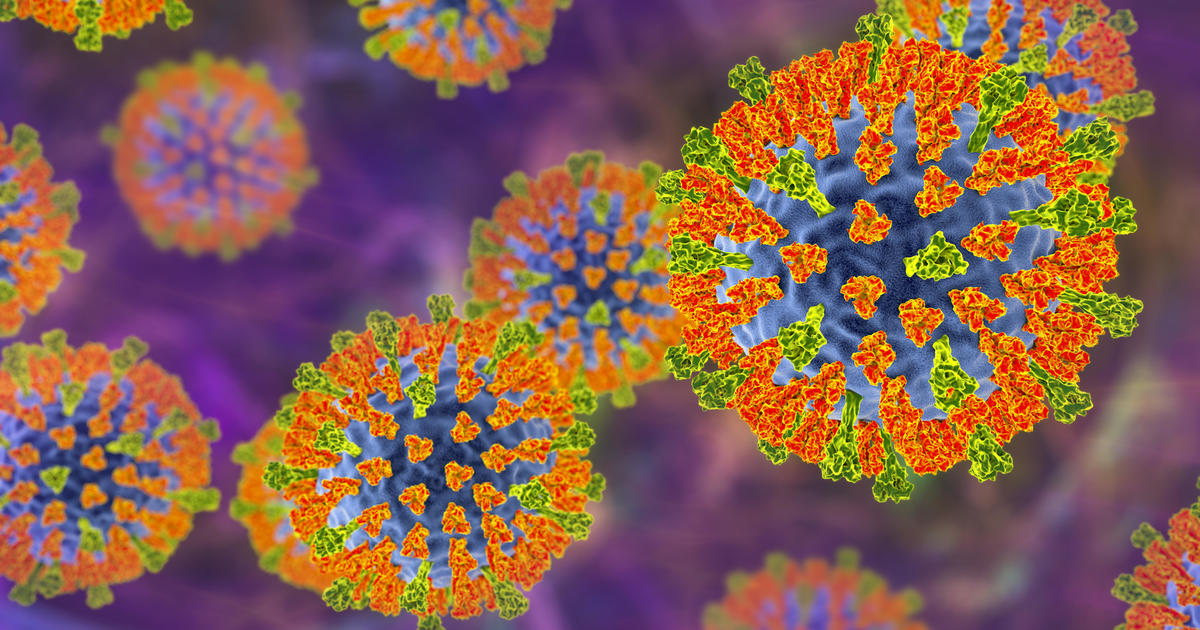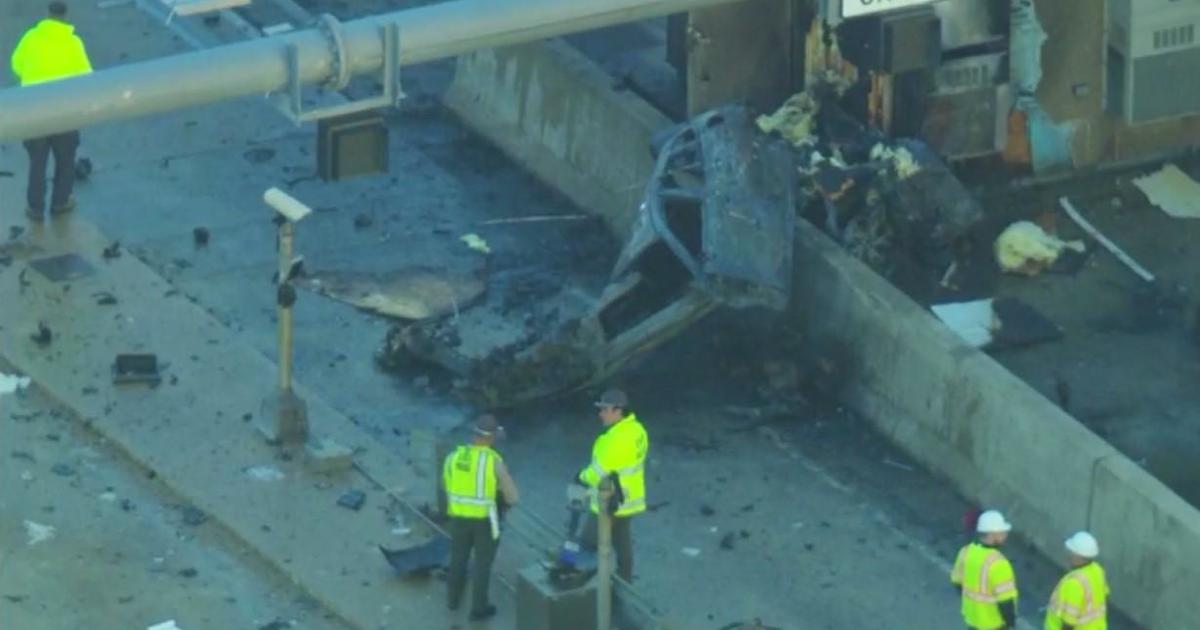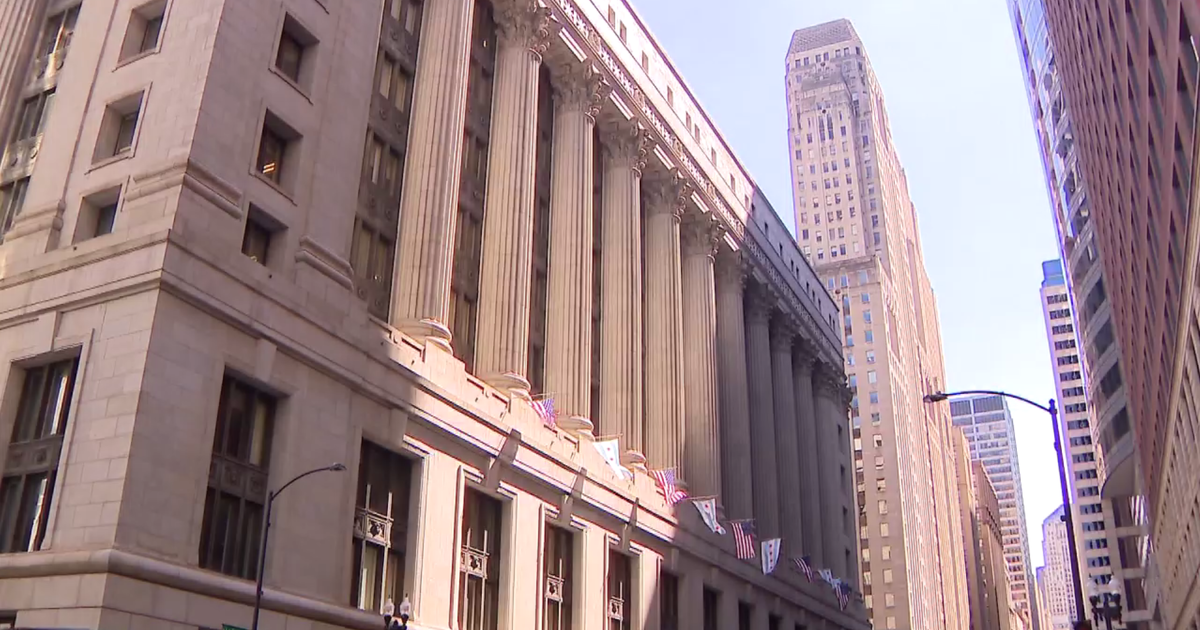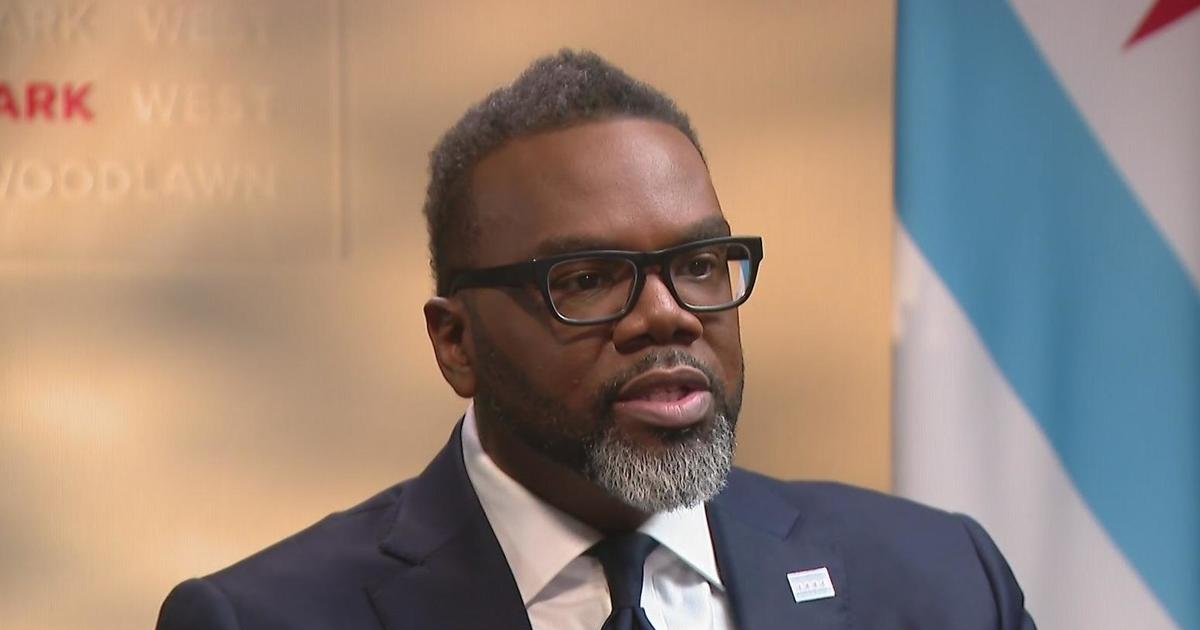Mayor Lightfoot Announces School Closure Extended To April 20, Orders Anyone Who Is Sick To Stay Home, Amid Coronavirus Pandemic
CHICAGO (CBS) -- Mayor Lori Lightfoot on Thursday announced that the Chicago Public Schools' closure will be extended to April 20 in response to the coronavirus pandemic.
By state mandate from Gov. JB Pritzker, all Illinois schools – public and private – are closed until March 30. But given what is expected to be an upward trajectory of the virus spread, the mayor – in consultation with Chicago Department of Public Health Commissioner Dr. Allison Arwady and Chicago Public Schools Chief Executive Officer Janice Jackson – decided to extend the closure.
Under the new timeline, students will return to classes on Tuesday, April 21.
"We need to give parents and guardians plenty of advance notice about this reality and the ability to plan. CPS and the City will continue to support you in the ways that they have throughout these early days of the school closures," Mayor Lightfoot said. "A thousand thanks of gratitude to everyone inside and outside of CPS who have been stepping up for our kids and our families."
Mayor Lightfoot also announced an order that locks down anyone diagnosed with COVID-19 or showing symptoms from being sick.
"Today, at my direction, the Department of Public Health issued an order that until further notice, if you are sick with respiratory symptoms like cough, fever, or shortness of breath, but also, and importantly if you are beginning to feel sick –body aches, fatigue, sore throat – you too are ordered to stay home unless seeking medical care, or other essentials like food," the mayor said. "If you violate this order, there have to be consequences. Be smart, be safe, and stay home if you are sick. That's an order."
Mayor Lightfoot also said anyone who is a member of population – that is, anyone over 60, but also people with underlying medical conditions – should also stay home as possible.
"Put your health first and don't put yourselves or others at risk," Lightfoot said.
Lightfoot stopped short of a shelter in place order that requires the entire population of a jurisdiction to stay at home except for essential needs. Oak Park issued such an order on Wednesday, to take effect Friday.
The mayor also addressed the economic crisis that the coronavirus pandemic has already caused.
"No question that our local economy is being hit hard by this crisis," Mayor Lightfoot said. "Most notable is our hospitality industry –conventions, hotels, restaurants, bars and other forms of entertainment and services are suffering. Many have shared the immediate issues of cash shortages, concerns with making payroll, and for many, the very survival of your business is in question. We also see needs for our airlines, airports and the related businesses that depend upon air transportation every day. Our mass transit is also being hit as people appropriately follow the directives to stay home and employers have activated teleworking options for their employees."
Lightfoot emphasized that the city itself has the "incredible benefit of being a strong and diverse economy," and as with other crises such as the Sept. 11, 2001 terrorist attacks and the Great Recession of 2008 and 2009, Chicago and the surrounding area bounced back strong and worked quickly to recover.
"We are working at all levels of government –local, county and state, to make sure that the final tale of this economic challenge will be the same –a strong comeback," she said.
The mayor emphasized that the city's finances remain strong and has more than enough cash on hand.
Still, given the challenges many people are facing, Lightfoot noted that the city has suspended many debt collection, ticketing, booting, and towing practices until April 30.
She also noted that Cook County Sheriff Tom Dart will be delaying eviction orders, also through April 30.
"I call upon all property owners to give tenants some grace, wherever possible during these trying times," Lightfoot said. "No one needs the added stress of evictions, certainly not now. Similarly, I call upon banks to grant relief from foreclosure efforts during this crisis."
Meanwhile, Mayor Lightfoot also noted the creation of the Chicago Small Business Resiliency Fund to help struggling small business in this era of shutdowns.
The fund will start with more than $100 million in targeted, low-interest loans for small businesses that have been impacted severely, Lightfoot said.
"These loans are designed to provide much needed cash-flow relief for neighborhood entrepreneurs. This is a public-private partnership involving a $25 million grant by the City of Chicago, $50 million in capital by the Chicago Community Catalyst Fund, as well as $10 million from Goldman Sachs' Urban Investment Group," Lightfoot said.
Fifth Third Bank has already pledged $1 million to the fund, and Bob Clark and Clayco Construction have pledged $250,000, Lightfoot said. She invited other businesses also to make contributions.
The city is also providing relief to small businesses until April 30 for taxes on bottled water and checkout bags, the amusement tax, the hotel accommodation tax, the restaurant tax, and the parking tax.
Lightfoot also called on the federal government to take action on the economy – with measures such as extending and increasing unemployment benefits to small businesses.
"Localities like Chicago should not be shouldering this burden alone," Lightfoot said. "This is a B-sized problem, meaning something that can only be solved with billions in needed stimulus support from the federal government."
Lightfoot emphasized that throughout the history of Chicago, the city has bounced back from numerous challenges and horrors and will do so again.
"When our city burned to the ground in a great fire, a fire that one historian noted started on DeKoven Street near Halsted and Roosevelt Road, it burned over four square miles of our city, from the central business district and government buildings, slum areas and neighborhoods of the wealthy, theatres, churches and sporting houses and more, we rose from the ashes the very next day to grow bigger and stronger than we had ever been before," Lightfoot said.
With that in mind, Mayor Lightfoot emphasized that the city has been preparing and researching ever since coronavirus was first identified.
"Our Department of Public Health started tracking this virus when the first reports started coming from China in December, almost four months ago," Lightfoot said. "As we prepared for this virus coming to the U.S., and specifically Chicago, our Public Health and emergency management teams drew upon lessons learned last summer, when many city departments and partners participated in a full scale drill in which we were called upon to respond to a pandemic virus, whose circumstances closely mirrored the challenge we are facing today."
Lightfoot reminded Chicagoans to take care of themselves and one another.
"And Chicago, we need to love each other with all our hearts today and every day. While this is a time of physical isolation, we still need to stay connected," Lightfoot said. "We need the warmth of smiles, hellos and thank yous. The words of comfort and acknowledgement that each of us, regardless of station or circumstances matters."



